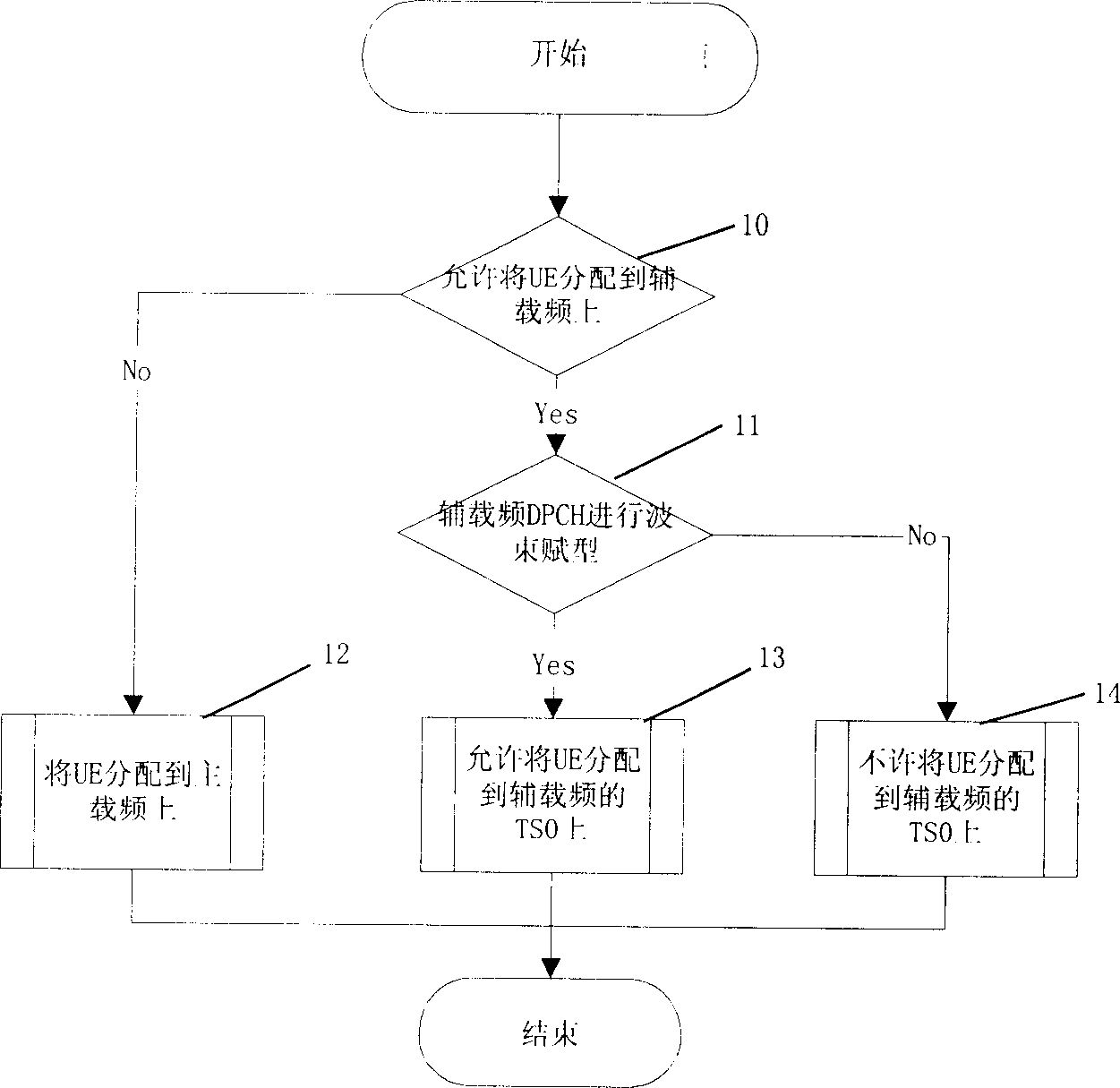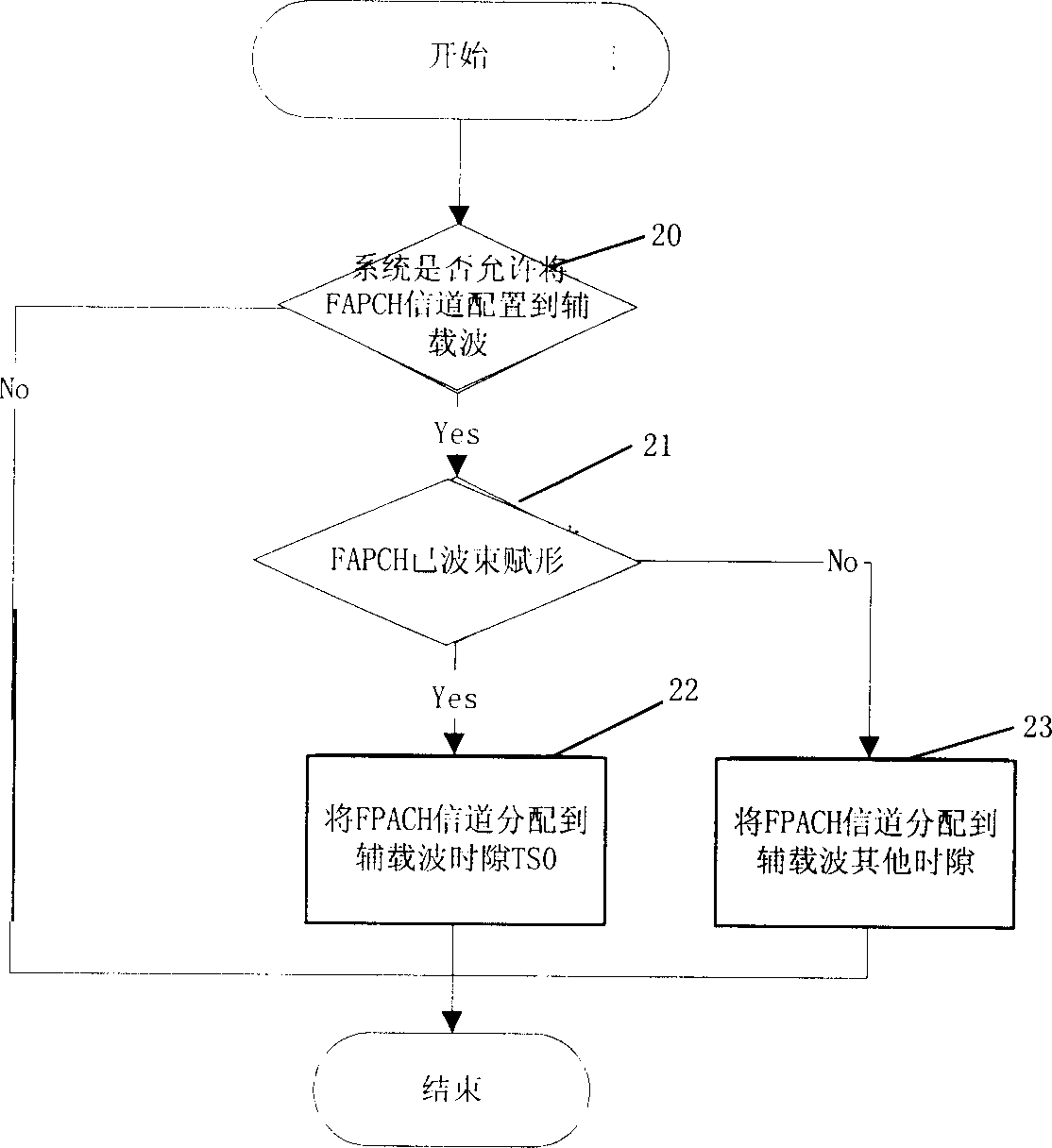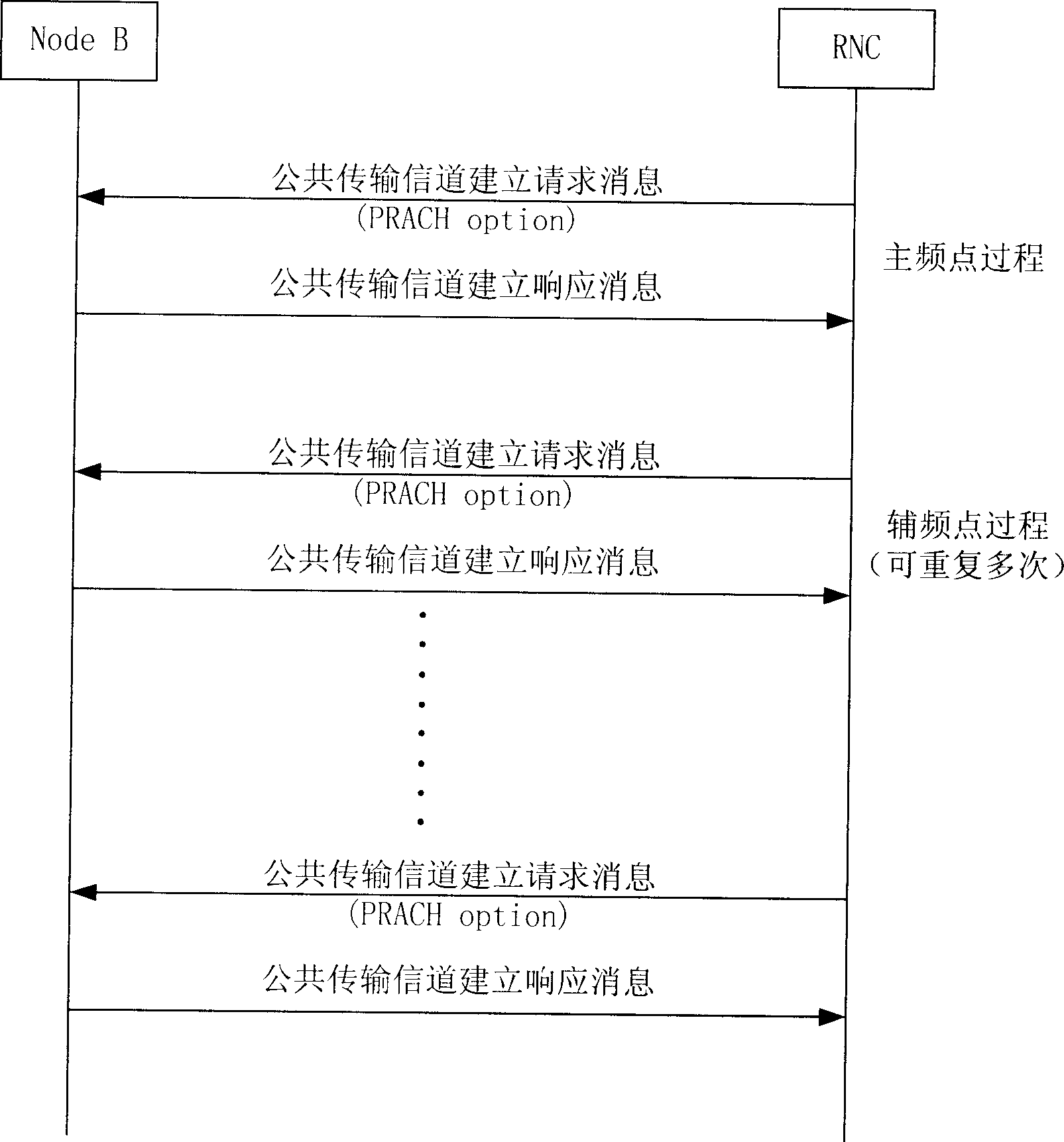Channel resource allocation method
A channel resource and channel allocation technology, which is applied in the field of channel resource allocation, can solve the problems of main carrier congestion, multi-carrier advantages cannot be brought out, and UEs that cannot use multiple carrier frequencies are allocated to auxiliary carriers, etc., so as to achieve the effect of improving utilization
- Summary
- Abstract
- Description
- Claims
- Application Information
AI Technical Summary
Problems solved by technology
Method used
Image
Examples
Embodiment Construction
[0051] The channel resource allocation method of the present invention is applied in the TD-SCDMA multi-carrier system, and its core is to allow the use of the auxiliary carrier time slot TS0 on the auxiliary carrier frequency, that is, to allow the beamforming channel to be allocated to the auxiliary carrier time slot TS0. For example, allocating the DPCH channel of the UE to the auxiliary carrier time slot TS0 can further improve the capacity of the multi-carrier system.
[0052] The channels that can be allocated on the time slot TS0 in the present invention include downlink DPCH channel, FPACH, etc., which will be described below.
[0053] refer to figure 1 , which is a flowchart of allocating DPCH channels of user equipment in the present invention. It mainly includes the following steps:
[0054] First at step 10, judge whether the system allows the DPCH channel to be allocated to the secondary carrier, if so, proceed to step 11; otherwise perform step 12;
[0055] St...
PUM
 Login to View More
Login to View More Abstract
Description
Claims
Application Information
 Login to View More
Login to View More - R&D
- Intellectual Property
- Life Sciences
- Materials
- Tech Scout
- Unparalleled Data Quality
- Higher Quality Content
- 60% Fewer Hallucinations
Browse by: Latest US Patents, China's latest patents, Technical Efficacy Thesaurus, Application Domain, Technology Topic, Popular Technical Reports.
© 2025 PatSnap. All rights reserved.Legal|Privacy policy|Modern Slavery Act Transparency Statement|Sitemap|About US| Contact US: help@patsnap.com



